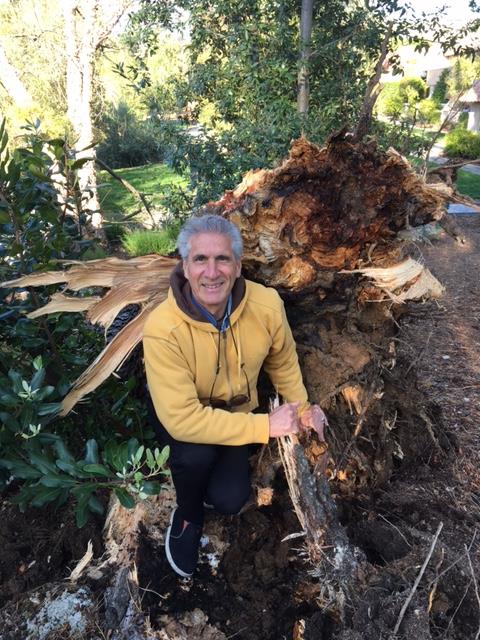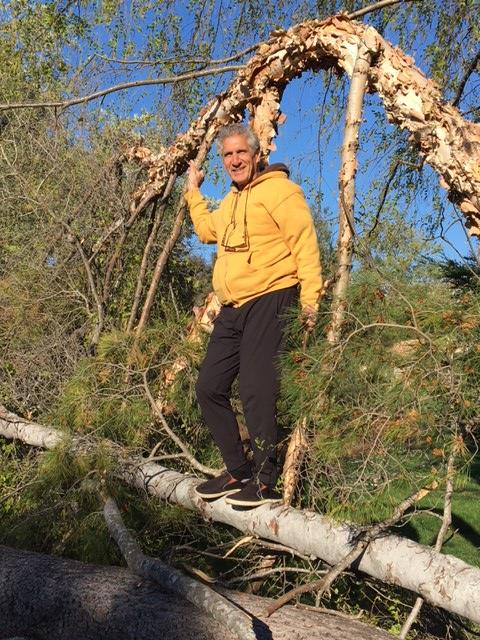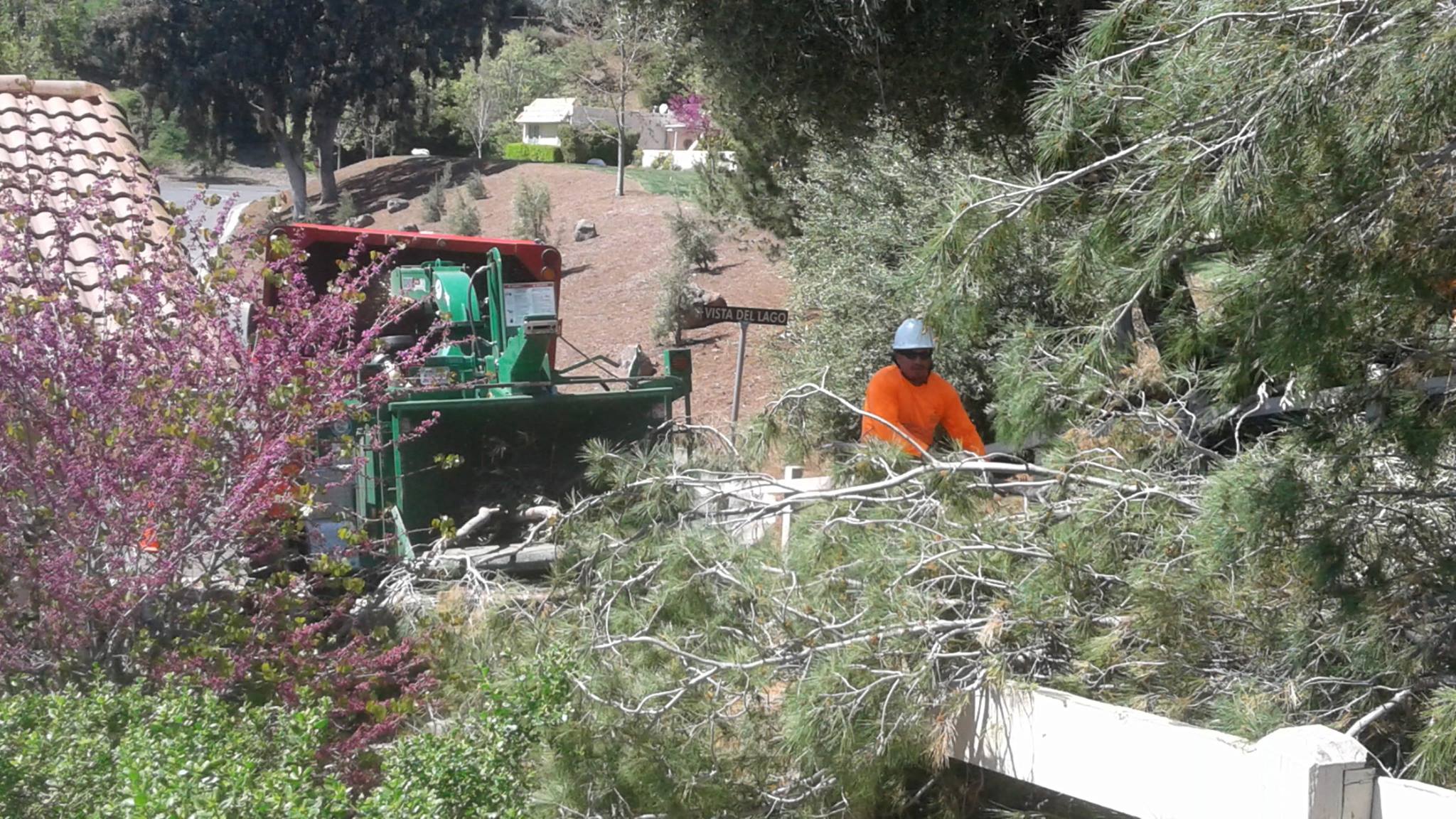While at my computer this past Wednesday morning at around 8 AM, I heard a loud crash and boom sound. My first thought was “wow,” the landscape maintenance crew at our 100 plus acre gated community at Rinconada Hills were really noisy today. Then I went back to what I was doing. Cecile had taken our son’s dog Daisy for a walk earlier. She said a tree had fallen and it was blocking the walking trails. “That was the sound I heard earlier,” I said. She looked surprised. But, I wasn't. You see my home office overlooks the walking trails of this unusually quiet refuge.
"Come on! Let’s go take a look,” I said. It was only a few hundred feet down the path. We were blown away by what we saw. A thirty foot Aleppo Pine tree was leveled to the ground leaving a fractured, rotted 5 foot high stump. It was only a matter of timing and fate that Cecile and Daisy as well as other residents were spared serious injury or worse. I felt a deep sense of relief and gratitude that they were safe.
This wasn’t the first tree I had seen a tree uprooted. While at Vasona County Park last Saturday I saw an even a bigger tree that had toppled to the ground as seen in the first photo. It too, was completely blocking a path where a public fundraising event: Walk with Compassion to End International Child Poverty was taking place.
I couldn’t help but think of something philosopher, George Berkley, postulated in the early 1700s. When he said, “If a tree falls in a forest and no one is around to hear it, does it make a sound?” This would later become a paradoxical Zen koan used to demonstrate the inadequacy of logical reasoning since there are many ways to answer. In my case, it became a moot issue, since I actually heard the sound–at least the one behind our town home.
Like us humans, all trees have the potential to keel over. There are many reasons a tree dies and falls: wind, ice, snow, flood waters, and disease-like fungus induced wood decay. But most tree experts say the main reason is a phenomenon called “‘windthrow” that causes a tree to uproot. It’s like we learned in physics class. The tree trunk acts as a lever arm and when force is applied to the roots and the trunk, it begins to reach a literal “tipping point,” and is seconds crashes to the ground.
After returning home I thought further about these acts of Mother Nature. The shapes of the felled tree looked almost-human like. Twisted and severed limbs. It really made me wonder if trees feel pain when falling to earth. Many from the scientific community say no. But over 40 years ago, scientists noticed an interesting phenomenon on the African savanah. Giraffes were feeding on umbrella thorn acacias, and the trees resisted the attack. Within minutes they began pumping toxic substances into their leaves. The giraffes got the message and moved on to other acacia trees. Eventually they had to abandon their efforts as the trees whose leaves were being eaten sent out a signal—via an emission of ethylene gas—to members of their own species warning them of an impending crisis. All the forewarned trees prepared themselves by pumping toxins into their leaves and the crisis was averted.
Reference: Do Trees Have Feelings Too? One Expert Says they Do. Peter Wohlleben, The Telegraph, September 2016





